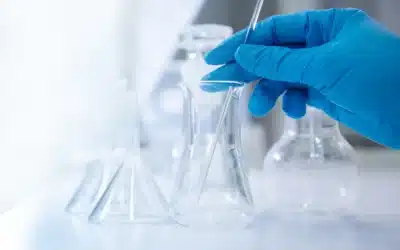LEARNING
Research & News
Looking Ahead: Emerging Trends and Technologies in Clinical Laboratory Services
The field of clinical laboratory science never stands still. Advances in genomics, artificial intelligence (AI), and point-of-care testing are reshaping how—and where—diagnostic testing occurs, while evolving regulations and…
Optimizing Workflows: How Lean Principles Can Boost Efficiency in the Lab
A clinical laboratory’s success hinges on more than just the accuracy of test results—it also depends on how quickly and efficiently those results are delivered. Labs can lose time and money through poorly designed processes, unnecessary steps in...
Financial Planning and Cost Management: Budgeting for Ongoing Success
Launching a clinical laboratory isn’t just a technical or regulatory endeavor—it’s also a financial one. Long after you’ve secured your initial funding and cleared the start-up hurdles, your lab will face ongoing costs for consumables, instrument...
Henry Schein Medical Expands SolutionsHub with Colaborate
Henry Schein Medical, the U.S. medical business of Henry Schein, Inc., has expanded its SolutionsHub™ with the addition of Colaborate, a full-service management consulting firm dedicated to serving independent and hospital-based medical laboratories. Together…
Ensuring Safety and Biosecurity: Lab Design and Operational Best Practices
Within the realm of clinical diagnostics, safety and biosecurity aren’t just regulatory mandates—they’re foundational pillars that protect both lab personnel and the public. A single incident involving hazardous materials or a lapse in infection...
Staffing a Modern Lab: Recruiting, Training, and Retaining Top Talent
Behind every efficient clinical laboratory lies a team of skilled, motivated professionals who keep operations running smoothly and ensure patient safety at every turn. Even the most advanced instruments and robust quality management…
Lab Instrumentation and Technology: Choosing the Right Partners for Growth
Clinical laboratories rely on a complex ecosystem of instruments, software solutions, and vendor partnerships to deliver accurate, efficient, and timely results. Whether you’re launching a new facility or considering upgrades to accommodate growth…
Navigating CMS’s Latest Updates to Lab Personnel Requirements
It’s been over three decades since the Centers for Medicare & Medicaid Services (CMS) last significantly revised its Clinical Laboratory Improvement Amendments (CLIA) personnel requirements. With rapid advancements in laboratory…
Building a Culture of Quality and Compliance: Internal Audits & Continuous Improvement
In the clinical laboratory world, achieving regulatory compliance is only half the battle. Long-term success hinges on creating a culture of quality—an environment in which every team member takes ownership of…
Pre-Inspection Preparation: How to Ace Your Next Regulatory Visit
Navigating a regulatory inspection can be intimidating, especially for newer clinical laboratories still finding their footing. Yet with adequate preparation and a proactive mindset, inspections can become far less daunting—and even serve as...










